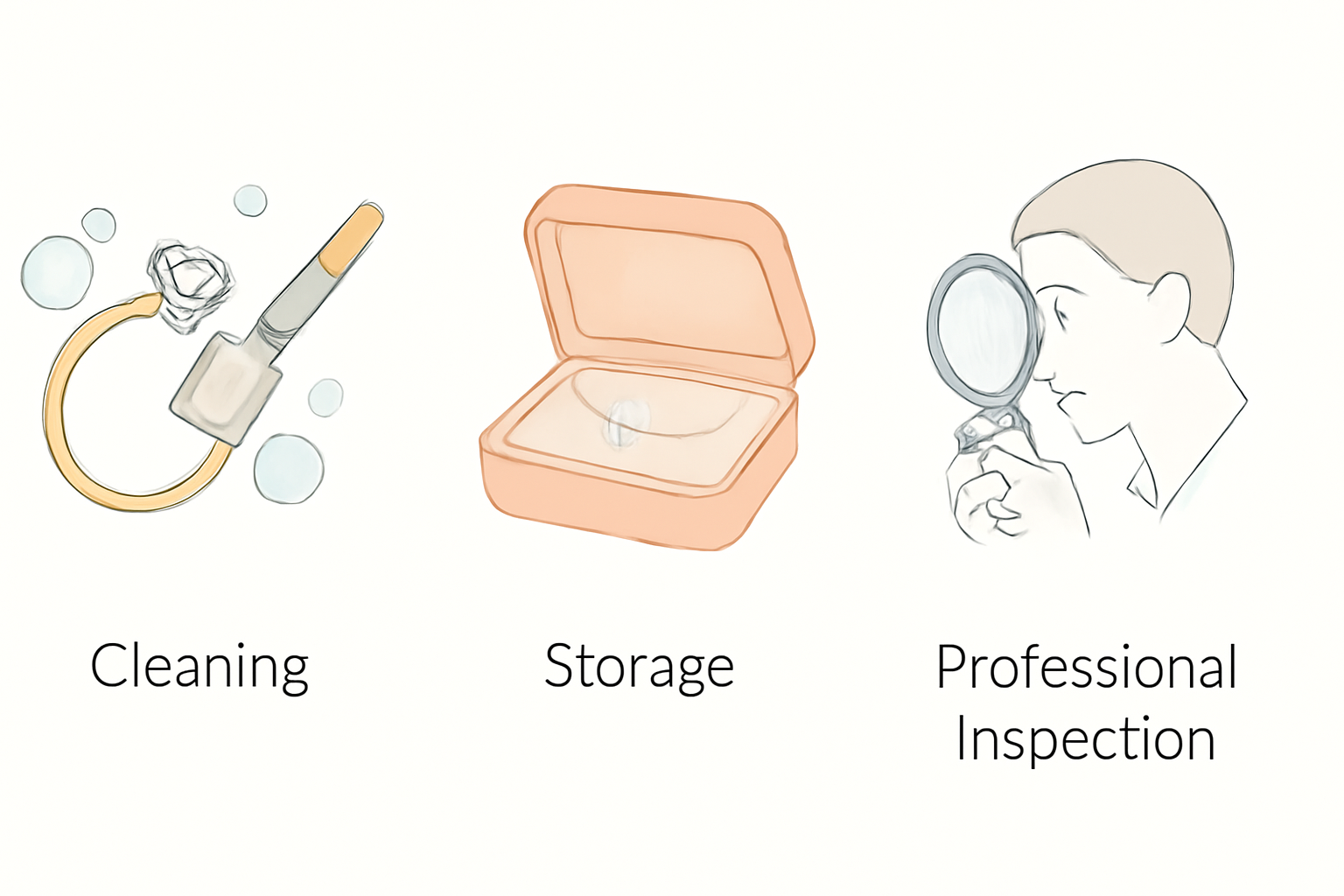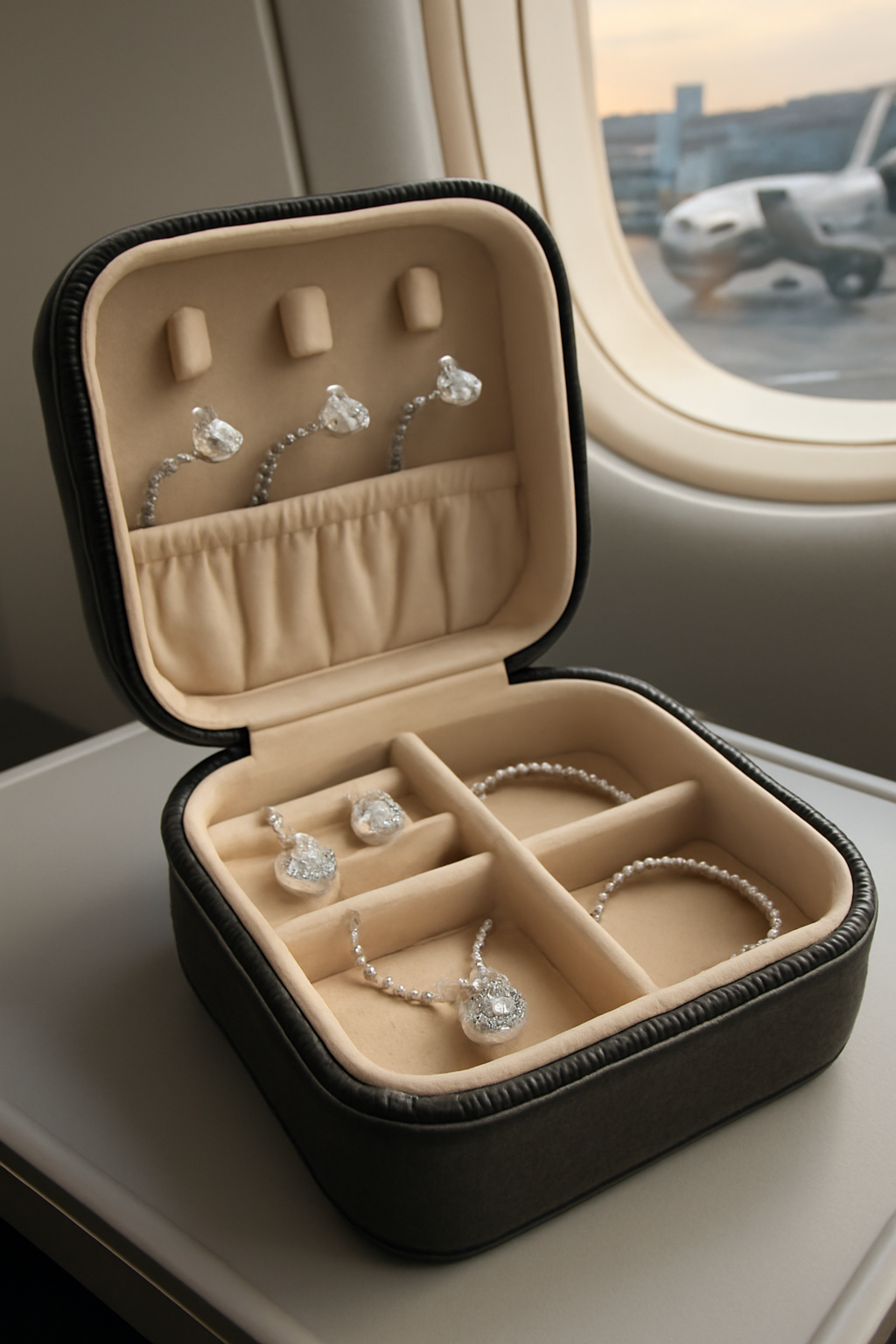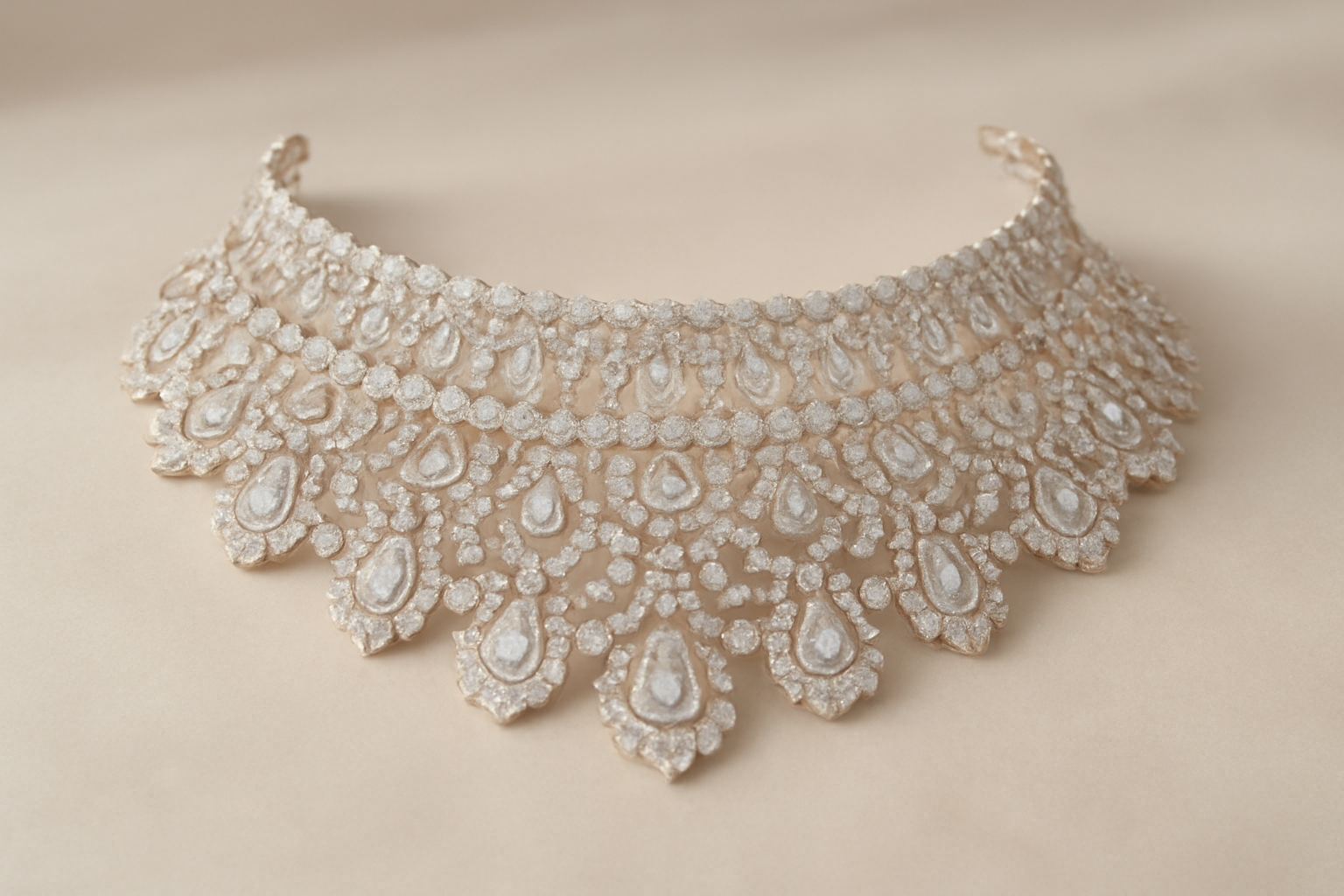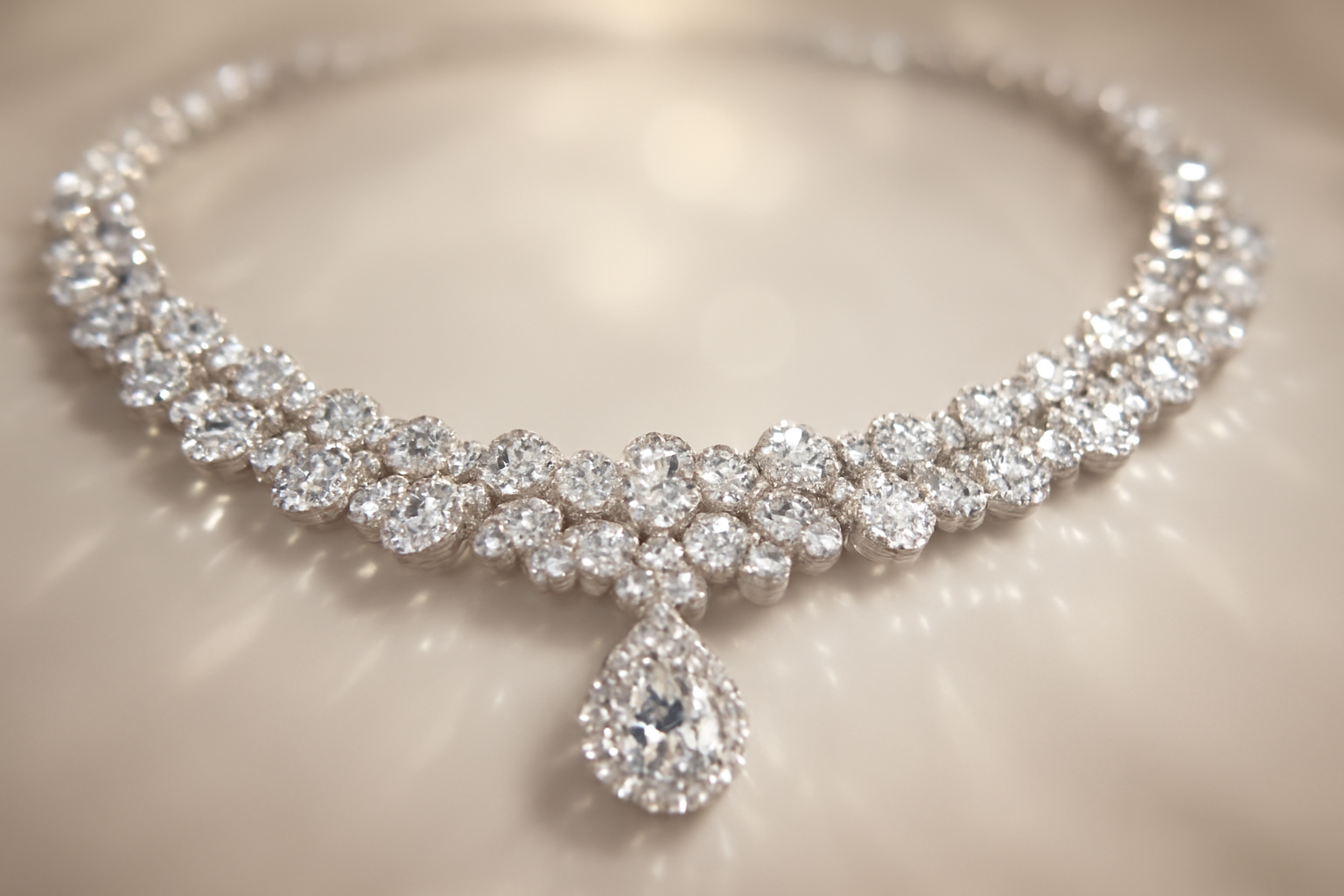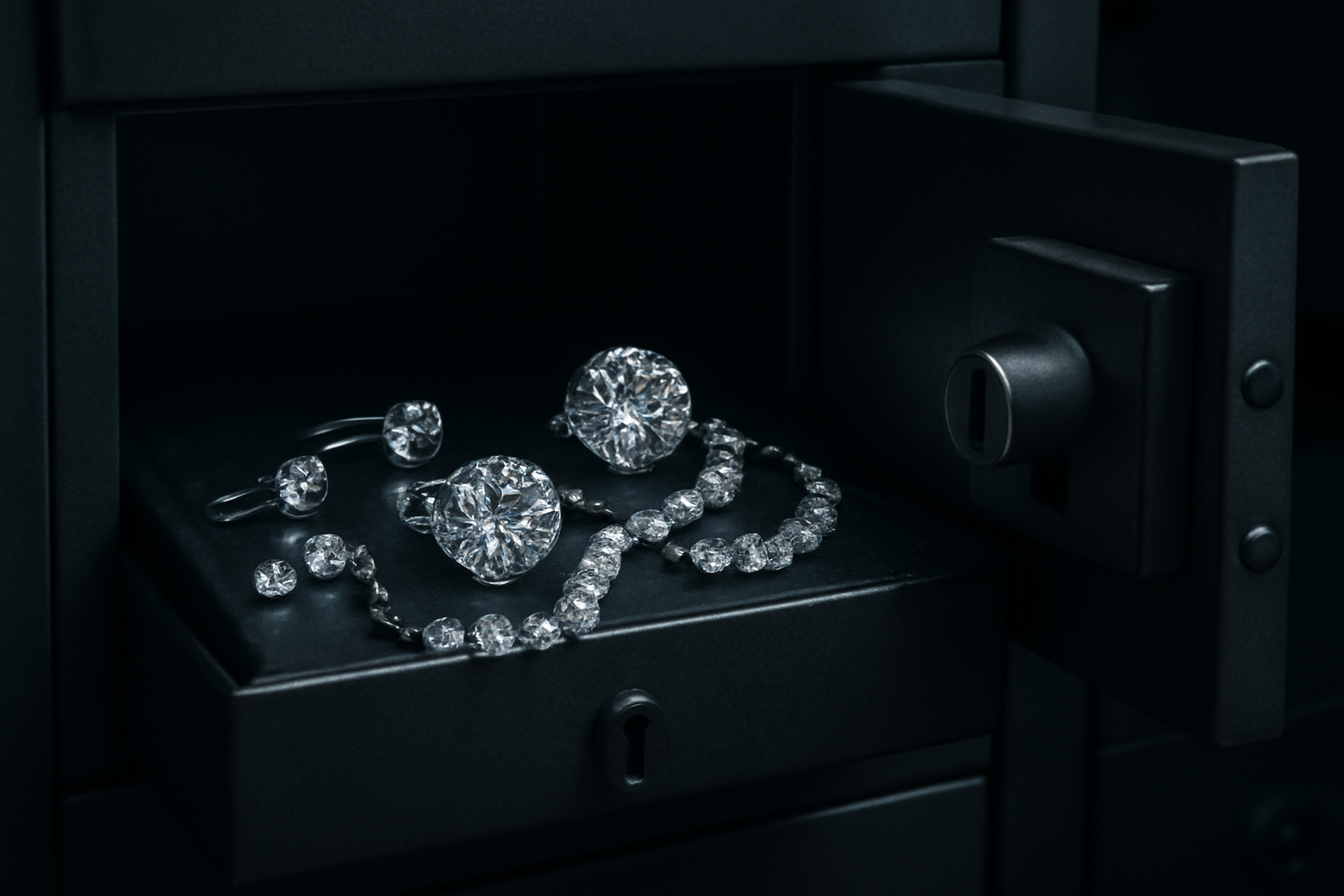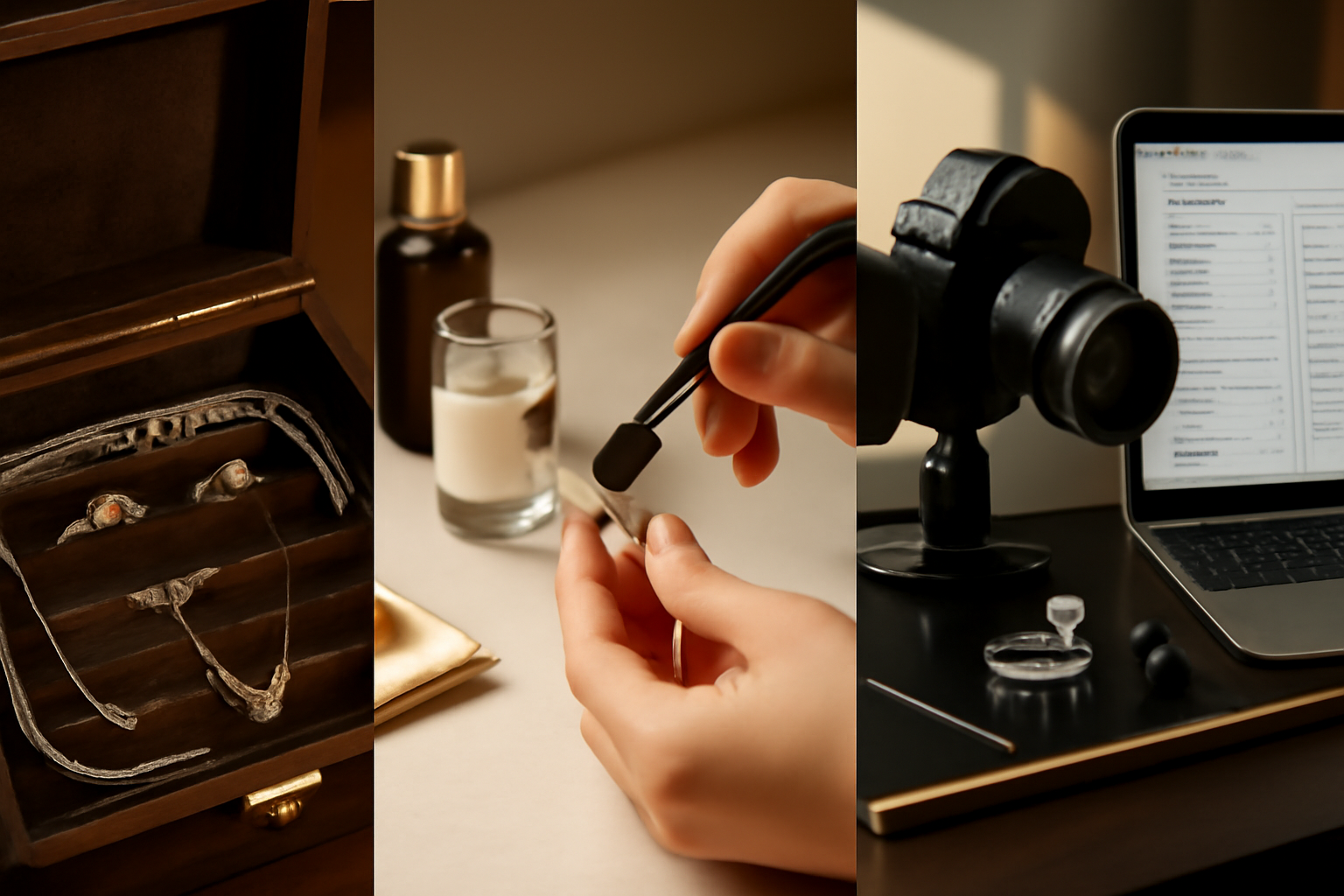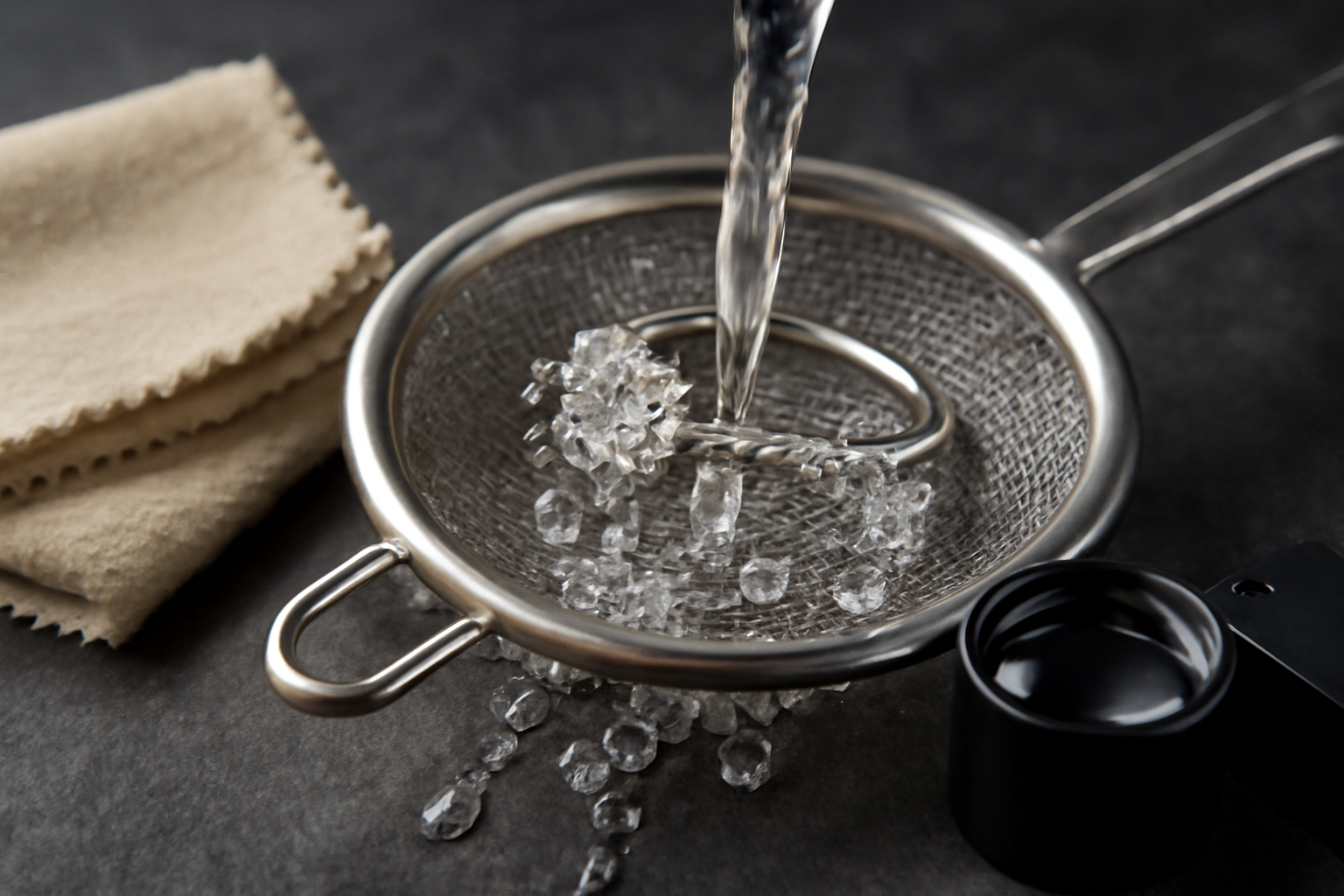How to Care for Your Diamond Jewellery: Complete Guide
Diamonds are not just precious stones; they are emotional investments symbolizing love, luxury, and elegance. Owning diamond jewellery such as rings, earrings, bracelets, or necklaces means carrying a piece of timeless beauty with you. However, like any fine item, diamonds require regular care to maintain their brilliance, sparkle, and value. This guide will help you understand how to care for your diamond jewellery effectively so that it can be cherished for generations.
Why Diamond Jewellery Care is Important
Even though diamonds are one of the hardest substances on earth, they are not indestructible. Over time, exposure to dirt, oil, and everyday wear can dull their shine. Additionally, improper storage or rough handling can cause scratches or loosen the setting. Regular care ensures:
- Preservation of brilliance and sparkle
- Prevention of accidental stone loss
- Maintenance of long-term value
- Extended durability of precious metals and settings
Daily Care Tips for Diamond Jewellery
Taking care of your diamonds daily can prevent long-term damage. Here are simple habits you can incorporate into your routine:
- Avoid contact with harsh chemicals: Chemicals in perfumes, cosmetics, chlorine, and cleaning agents can damage metals and dull the diamond’s appearance.
- Remove jewellery before activities: Always take off your diamond rings and bracelets before exercising, swimming, gardening, or doing household chores.
- Be mindful of lotions and oils: These substances can accumulate on your jewellery’s surface, making diamonds look cloudy.
- Handle with care: When putting on or removing rings, hold them by the band rather than the stone.
How to Clean Diamond Jewellery at Home
Diamonds naturally attract grease and dust, but the good news is that you can clean them at home with minimal effort. Follow these steps to restore their sparkle:
Basic Home Cleaning Method
- Fill a small bowl with warm water and add a few drops of mild dishwashing liquid.
- Soak your diamond jewellery in the solution for 20–30 minutes.
- Gently scrub with a soft-bristled toothbrush, especially around the setting and under the stone.
- Rinse thoroughly with clean water.
- Pat dry with a lint-free cloth or microfiber towel.
Alternative Cleaning Methods
- Ammonia Cleaning: Mix one part ammonia with six parts water. Soak your jewellery briefly, then rinse and dry. Avoid frequent use, as ammonia can weaken metals.
- Baking Soda Paste: For deep cleaning gold-set diamonds, mix baking soda with water to form a paste. Apply gently, then rinse thoroughly.
- Professional Jewellery Cleaners: You can purchase specialized cleaning solutions designed for diamonds. Always follow the instructions carefully.
Professional Cleaning and Maintenance
While home cleaning is effective, professional care ensures your diamond jewellery remains in top condition. Experts can check for loose prongs, setting wear, and hidden dirt. It is recommended to have your jewellery inspected and professionally cleaned every six months. This not only maintains the brilliance but also prevents costly repairs in the future.
Best Ways to Store Diamond Jewellery
Storage plays a crucial role in preventing scratches, tangling, and unnecessary wear. Here are the best storage practices:
- Use individual pouches or boxes: Diamonds can scratch other diamonds or gemstones, so keep them separate.
- Choose soft-lined jewellery boxes: Velvet or satin compartments prevent abrasions.
- Keep away from extreme temperatures: Moisture and heat can damage both diamonds and their settings.
- Organize by type: Store rings, earrings, bracelets, and necklaces in dedicated slots for easy access and safety.
Things You Should Never Do with Diamond Jewellery
To preserve your diamonds for generations, avoid the following common mistakes:
- Never wear diamond jewellery while applying perfumes, hairsprays, or heavy creams.
- Never store your diamonds together without separators to prevent scratches.
- Never use harsh or abrasive cleaners like bleach or acetone.
- Never ignore loose stones or damaged prongs; always get them repaired immediately.
Travel Tips for Diamond Jewellery
If you’re traveling with your diamonds, special care is necessary:
- Always use a travel jewellery case with compartments.
- Keep jewellery in your carry-on luggage, not check-in bags.
- Limit the number of pieces you travel with to reduce the risk of loss.
- Consider travel insurance for high-value jewellery.
Eco-Friendly Diamond Jewellery Care
For those who care about sustainability, you can clean and store your diamonds in eco-friendly ways too:
- Use natural cleaners like vinegar or lemon water (for gold-set jewellery, not silver or platinum).
- Polish with organic cotton cloths instead of synthetic wipes.
- Store jewellery in wooden or recycled-material boxes with fabric padding.
When to Re-polish or Refinish Diamond Jewellery
Over years of wear, the metal around your diamonds may scratch or lose shine. In such cases, jewelers can re-polish or re-plate the setting to restore its brilliance. However, this should only be done when necessary to maintain the integrity of the piece.
Frequently Asked Questions (FAQs)
1. How often should I clean my diamond jewellery?
It is best to clean your jewellery at home once a month and take it to a professional every six months for inspection and deep cleaning.
2. Can diamonds get scratched?
While diamonds are extremely durable, they can still scratch each other or softer gemstones if stored improperly.
3. What is the safest way to clean diamond jewellery?
The safest home cleaning method involves soaking in warm water with mild dish soap and scrubbing gently with a soft brush.
4. Is ultrasonic cleaning safe for diamonds?
Ultrasonic cleaners can be effective but should be avoided for jewellery with loose stones or delicate settings. Consult a professional jeweler first.
5. Should I remove my diamond ring before sleeping?
Yes, removing your diamond ring before sleeping can prevent accidental scratches and reduce pressure on the prongs of the setting.


